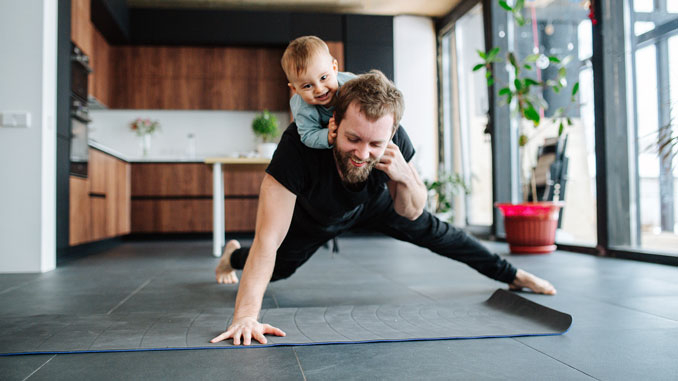
Feeling a little down? Especially in the midst of a pandemic, who can blame you? Luckily, there’s a fast way to give your mood a boost, and it only takes sixty seconds. Exercise in general is good for your mental well-being. Breaking a sweat, for example, releases endorphins. Jackie Kiegley, fitness and group exercise director at Twin Arbors Private Sports, says exercise is an integral part of happiness and can promote feelings of happiness. Exercise also promotes increased mobility and can reduce physical pain, all of which makes you feel better overall.
- While exercise in general has mood boosting powers, there are reasons that planking—an isometric core strength exercise where people assume a position similar to the top of a push-up and hold it for an extended period of time—can bring some extra happy to your day. The position allows for muscles to stretch, ultimately helping to relax them. If you spend much of your day sitting, you likely notice stiff muscles throughout the body and holding a plank for as little as thirty seconds (and completing a few reps) can help those tired muscles find relief.
- Accomplishment feels good. A plank is an exercise that is easy to use for tracking progress. If you’ve never done a plank before, or if you don’t exercise regularly, start small. Hold the plank position and focus on keeping the body in a straight line, without raising the booty up too high. At first, hold the position for just 15-20 seconds at a time and repeat the process three times per session. As core strength builds, increase time increments; one minute is pretty standard for holding a plank. From there, increase the frequency, duration, and/or repetitions. If this doesn’t feel like enough of a challenge, add weights. A partner can place a circular weight plate on the back to help promote muscle engagement and build strength.
- A plank builds core strength. Your core encompasses your abs, back, obliques, and even arms and legs. A weak core carries a lot of penalties including poor posture, lower back pain, and more susceptibility to muscle injuries. People with a weak core are also more likely to experience fatigue and a lack of endurance. By strengthening the core, you can reduce pain and increase strength, making day to day activities easier—what could make you happier than that?

